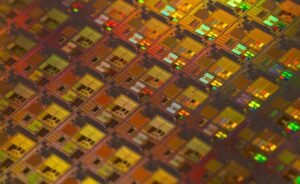Is Artificial Intelligence Engineering?
Artificial intelligence (AI) has rapidly become one of the most exciting and transformative fields in engineering. AI engineering involves designing systems and algorithms that exhibit intelligent behavior by simulating human intelligence, and it has the potential to revolutionize various industries and improve our day-to-day lives.
Key Takeaways:
- Artificial intelligence engineering focuses on creating systems and algorithms that mimic human intelligence.
- AI engineering has the potential to revolutionize industries such as healthcare, transportation, and finance.
- Machine learning and deep learning are essential components of AI engineering.
- AI engineers need a combination of technical skills, domain expertise, and creativity.
**Machine learning** and **deep learning** are two essential components of AI engineering. Machine learning involves training a computer to learn from data and make decisions or predictions without being explicitly programmed. Deep learning, on the other hand, is a subset of machine learning that utilizes artificial neural networks to simulate the way the human brain works, enabling machines to perform complex tasks such as image and speech recognition.
**Artificial intelligence engineers** need a combination of technical skills, domain expertise, and creativity. They should have a strong foundation in mathematics and computer science, as well as expertise in programming languages like Python or Java. Additionally, they must possess a deep understanding of the industry they are working in to develop AI solutions tailored to specific needs.
**The potential applications** of AI engineering are extensive and have the power to transform various industries. In healthcare, AI can assist in diagnosing diseases, developing personalized treatment plans, and improving patient outcomes. In transportation, AI can enhance autonomous vehicle technologies, leading to safer and more efficient transportation systems. In finance, AI can help detect fraudulent activities and make smarter investment decisions.
**Table 1** showcases some notable applications of AI engineering across different industries:
| Industry | AI Application |
|---|---|
| Healthcare | Medical diagnosis, drug discovery, patient monitoring |
| Transportation | Autonomous vehicles, traffic management, predictive maintenance |
| Finance | Fraud detection, algorithmic trading, customer service virtual assistants |
**The field of AI engineering** continues to evolve rapidly, with new breakthroughs and advancements being made regularly. As technology and computational power continue to improve, the capabilities of AI systems also increase. Researchers and engineers are constantly pushing the boundaries of what AI can accomplish, and the future holds even more exciting possibilities.
**Table 2** illustrates the growth of AI in recent years:
| Year | Global AI Market Size (in billions) |
|---|---|
| 2016 | 1.6 |
| 2017 | 2.8 |
| 2018 | 4.8 |
**AI engineering** presents both exciting opportunities and challenges. While AI has the potential to positively impact many aspects of our lives, it also raises concerns about privacy, bias, and ethical considerations. As AI systems become more integrated into our daily lives, it is crucial to ensure that they are developed and used responsibly, with proper consideration of the potential risks and consequences.
**Table 3** highlights some ethical considerations in AI engineering:
| Ethical Consideration | Examples of Concerns |
|---|---|
| Privacy | Data privacy, surveillance, facial recognition |
| Bias | Gender, racial, or socioeconomic biases in AI systems |
| Unemployment | Impact of AI on job displacement and workforce changes |
Overall, artificial intelligence engineering is a rapidly growing and exciting field that has the potential to revolutionize various industries and improve our lives. With ongoing advancements and breakthroughs, AI engineers can unlock new possibilities and tackle complex challenges. However, it is essential to approach AI development with responsibility, considering both the benefits and the potential risks associated with this transformative technology.

Common Misconceptions
Artificial Intelligence Engineering Title
When it comes to the field of artificial intelligence engineering, there are several common misconceptions that people often have. It is important to clarify these misunderstandings to have a better understanding of the topic.
- AI engineers only work on creating humanoid robots.
- AI engineering is all about creating superintelligent machines like the ones portrayed in science fiction.
- AI engineering will replace human jobs entirely.
Firstly, a common misconception is that AI engineers only work on creating humanoid robots. While robotics is a part of artificial intelligence engineering, it is not the sole focus. AI engineers also develop algorithms, machine learning models, and natural language processing systems that can be applied in various industries.
- AI engineering involves working on algorithms and models that have real-world applications.
- AI engineers can specialize in areas such as computer vision, speech recognition, or data analysis.
- AI engineering is interdisciplinary and may require knowledge of computer science, mathematics, and engineering principles.
Another misconception is that AI engineering is all about creating superintelligent machines like the ones portrayed in science fiction. While the goal of artificial intelligence is to create advanced systems, the current focus is on developing AI technologies that are practical and can provide value in real-world scenarios.
- AI engineering aims to enhance existing systems and processes rather than creating entirely new beings.
- AI applications can range from personalized recommendations in e-commerce to fraud detection in banking.
- AI engineering focuses on creating intelligent systems that can analyze and interpret large amounts of data.
Lastly, there is a misconception that AI engineering will replace human jobs entirely. While AI has the potential to automate certain tasks, it is more likely to augment human capabilities rather than replace them entirely. AI engineering is aimed at finding ways to enhance human decision-making and improve efficiency in various industries.
- AI engineering can automate repetitive tasks, freeing up humans to focus on more complex and creative work.
- AI technologies can work alongside humans to provide decision support and assist in tasks that require high accuracy.
- AI engineers are needed to develop and maintain AI systems, creating new job opportunities for individuals in the field.

Current Adoption of Artificial Intelligence in Different Industries
Artificial intelligence (AI) has rapidly gained traction across various industries, revolutionizing processes and enhancing efficiency. The table below highlights the current adoption of AI in different sectors.
| Industry | Level of AI Adoption |
|—————-|———————|
| Healthcare | Moderate |
| Finance | High |
| Manufacturing | Low |
| Retail | Moderate |
| Transportation | High |
Benefits of Artificial Intelligence in Healthcare
AI has the potential to revolutionize healthcare, providing numerous benefits. The following table outlines some of the advantages of AI in the healthcare industry.
| Benefits |
|————————————|
| Improved diagnosis and treatment |
| Enhanced patient monitoring |
| Efficient administrative tasks |
| Automated data analysis |
| Personalized healthcare solutions |
AI Technological Breakthroughs in the Finance Industry
Artificial intelligence has significantly impacted the finance industry, leading to technological breakthroughs. The table below showcases some notable AI advancements in finance.
| Breakthroughs |
|—————————–|
| Automated trading systems |
| Fraud detection algorithms |
| Robo-advisors |
| Smart virtual assistants |
| Credit scoring automation |
Manufacturing Processes Affected by Artificial Intelligence
Artificial intelligence has transformed various manufacturing processes, streamlining operations and improving efficiency. The table illustrates how AI impacts different aspects of manufacturing.
| Process | AI Impact |
|————————-|—————–|
| Quality control | Significant |
| Predictive maintenance | High |
| Supply chain management | Moderate |
| Production optimization | Moderate |
| Inventory management | Low |
Applications of Artificial Intelligence in Retail
Artificial intelligence has revolutionized the retail industry, and its applications are extensive. The table below presents various use cases of AI in the retail sector.
| Applications |
|——————————————|
| Customer chatbots |
| Personalized recommendations |
| Inventory management optimization |
| Fraud detection and prevention |
| Visual search and image recognition |
Artificial Intelligence in Transportation: Transforming the Industry
The transportation industry has greatly benefitted from the integration of artificial intelligence. The table highlights the transformative impact of AI on different transportation methods.
| Transportation Method | AI Impact |
|——————————|—————|
| Autonomous vehicles | High |
| Traffic management systems | Moderate |
| Predictive maintenance | Moderate |
| Route optimization | High |
| Logistics and fleet management | High |
Challenges of Implementing Artificial Intelligence in Healthcare
While AI offers significant benefits in healthcare, there are several challenges to its implementation. The table below outlines some hurdles faced in adopting AI in the healthcare industry.
| Challenges |
|————————————————-|
| Data privacy and security |
| Ethical considerations |
| Resistance to change |
| Regulatory compliance |
| Integration with existing systems and workflows |
Future Possibilities: Artificial Intelligence in Finance
The potential for artificial intelligence in finance is immense, with numerous possibilities for future development. The table presents some envisioned future prospects of AI in the finance industry.
| Future Possibilities |
|—————————————————————|
| Algorithmic trading surpassing human decision-making |
| Enhanced fraud detection and prevention |
| Personalized investment strategies based on individual profiles |
| Advanced risk assessment models |
| Smart contracts and automated financial transactions |
Ethical Considerations in Artificial Intelligence
The rapid growth of artificial intelligence calls for careful consideration of its ethical implications. The table below highlights some ethical concerns associated with AI development and implementation.
| Ethical Considerations |
|———————————————-|
| Bias and discrimination |
| Job displacement |
| Privacy invasion and surveillance |
| Lack of transparency in AI decision-making |
| Responsibility for AI malfunctions and errors |
Artificial intelligence engineering has revolutionized multiple industries, resulting in improved efficiency, enhanced processes, and numerous other benefits. From healthcare to finance, manufacturing to retail, and transportation to ethics, AI has made significant inroads. This article explored the current adoption of AI in various industries, highlighted its benefits and breakthroughs, outlined its impact on different processes, and considered the challenges and future possibilities. However, it is crucial to address the ethical concerns surrounding AI as we navigate the ever-evolving landscape of artificial intelligence.
Frequently Asked Questions
Is Artificial Intelligence Engineering
FAQs




